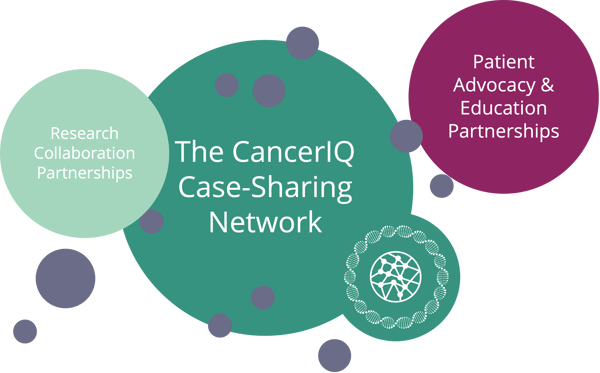
At the forefront of precision health, the City of Hope-University of Chicago meeting is the annual summit to learn about the latest advancements in the field of genetics. We were proud to announce our latest offerings, to underscore our commitment to the genetics community, high-risk program outcomes, and continued innovation in the field of precision prevention.
Feyi Ayodele, Chief Executive Officer and Co-Founder, CancerIQ announced 3 new offerings during her featured session, "Making Precision Prevention Actionable and Equitable at Scale.”
1. The CancerIQ Case-Sharing Network
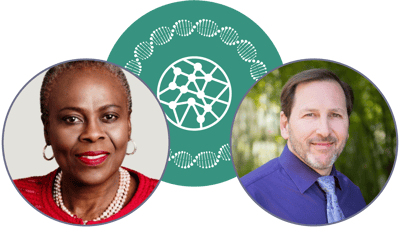
Dr. Funmi Olopade, MD
Director of Clinical Cancer Genetics
UChicago Medicine |
Dr. Jeffrey Weitzel
Director of Precision Prevention
University of Kansas |
CancerIQ is taking our mission to support genetics professionals one step further with the Case Sharing Network — a functionality within the CancerIQ platform allowing users to share comprehensive, de-identified data and collaborate with other genetics specialists and leaders in preventive oncology.
“This will be a resource where clinicians can tap into a community of experts and ensure their patients receive the highest quality, most up-to-date care possible,” said Ayodele.
We hope the CancerIQ Case Sharing Network can facilitate continued learning, collaboration and innovation from this event and beyond. The network will be led by Dr. Olufunmilayo “Funmi” Olopade, MD, FACP, Chief Scientific Officer and Co-founder, CancerIQ, and Jeffrey Weitzel, MD, Director of Precision Prevention, University of Kansas.
“To democratize access to precision cancer prevention, we must first democratize access to genetic expertise and innovation in this space,” said Dr. Olopade.
2. Research Collaboration Partnerships
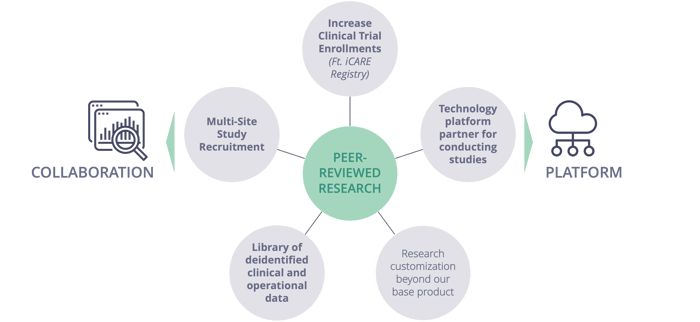
Secondly, we announced our work toward more robust research partnerships through two main tracks — either on the actual data behind the network or by actually using our platform to capture patient data and run their testing and care plans. Health systems are using CancerIQ through grants because of this already, and research powered by our platform was also recently published in Genetics in Medicine.
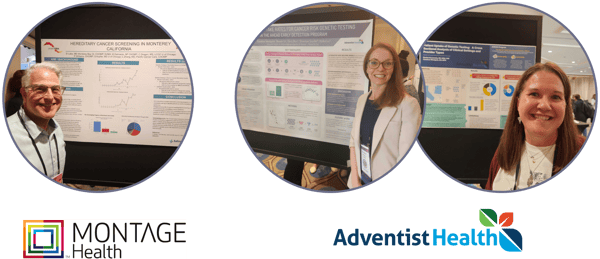
To that end, congratulations are in order to three of our CancerIQ customers, who were featured in the Poster Presentations at City of Hope this year! At Adventist Health, Dr. Candace Westgate, DO, and Denise Gruezensky, RN, MSN, FNP, are expanding access to genetic services for tens of thousands of patients through point-of-care genetic testing alongside their use of Myriad's patient education.
Similarly, Dr. Gregory Luba, MD, at Montage Health's research is creating systematic change in hereditary cancer screening. Stay tuned for a deeper dive into CancerIQ in data coming soon. Congratulations — we're so proud of our customers!
3. Patient Advocacy & Education Partnerships
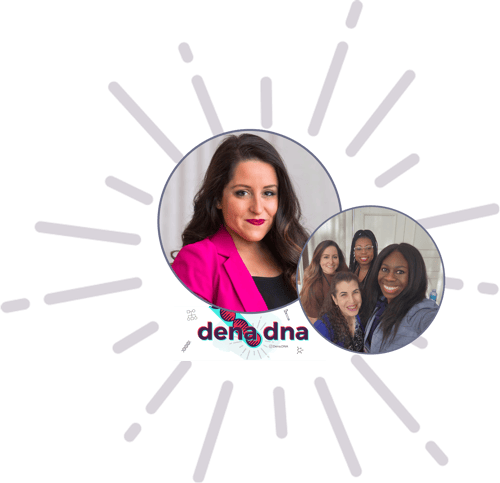
Thirdly, we announced new partnerships to ensure patients are actually adhering to recommendations, because we've learned that it takes more than software to accomplish this. One key message we’ll take away from this year’s conference: it’s time to reimagine models of care to bring risk assessment and precision prevention services to where patients are — beyond the four walls of the hospital.
We’re partnering with content creators like DenaDNA and building a team of advocates who are deeply in tune with what patients need to feel empowered rather than overwhelmed by their options.
"We don't just want patients to get tested, but actually adhere to their personalized follow-up care plans,” said Ayodele. These advocacy partnerships will ensure that CancerIQ is a hub for patients to receive all resources they need to make informed, educated decisions at their point of care, and feel appropriately coached about how and why to move forward."
CancerIQ customers will have exclusive access to the results of these partnerships. First, we’ll release a series of pre- and post-test educational videos to reduce the scripting burden on providers and decrease testing friction, featuring DenaDNA. Soon thereafter, providers will see the release of additional videos featuring advocates speaking patient-to-patient about the personal value of risk-reducing interventions like colonoscopies, as well as higher-risk procedures like prophylactic mastectomies and salpingo-oopherectomies.
Looking for the slides from this weekend's presentation?

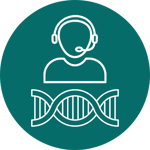
We also shared details on CancerIQ Complete, an exciting new offering designed to bridge genetic resource gaps with virtual services, including post-test patient navigation. CancerIQ Complete helps high-risk programs close the loop after risk assessment, ensuring patients are connected to the appropriate preventive services within the health system.